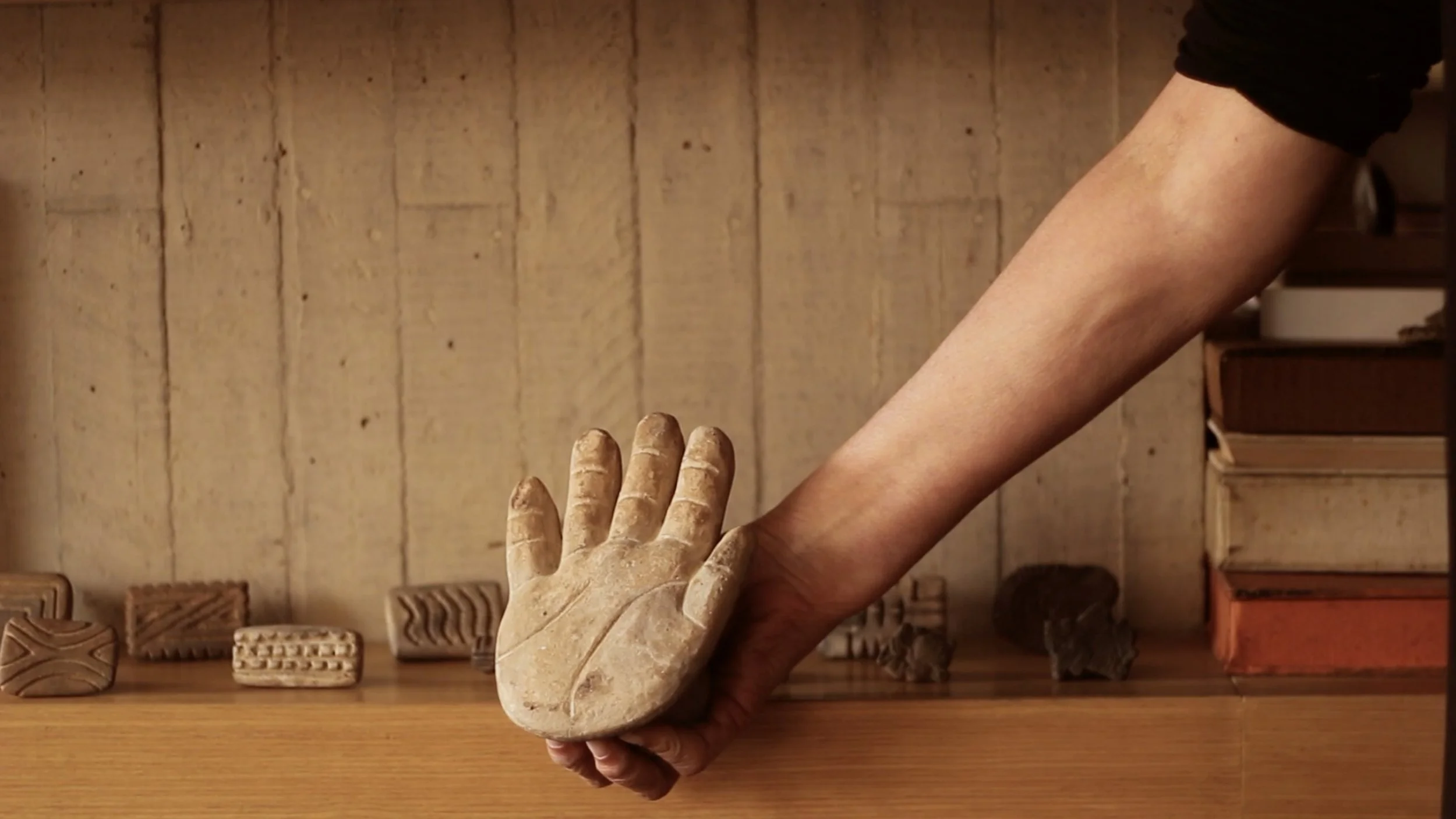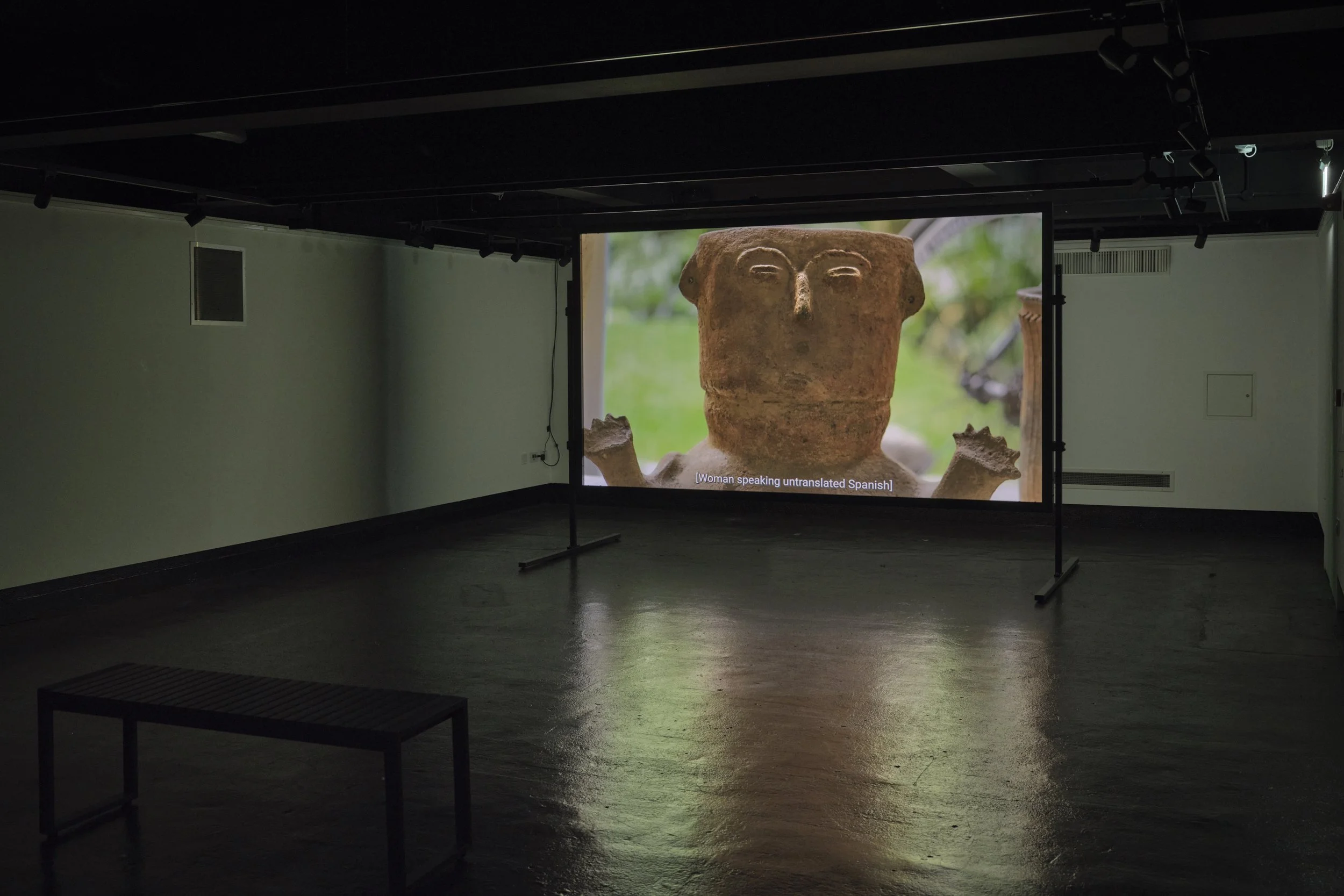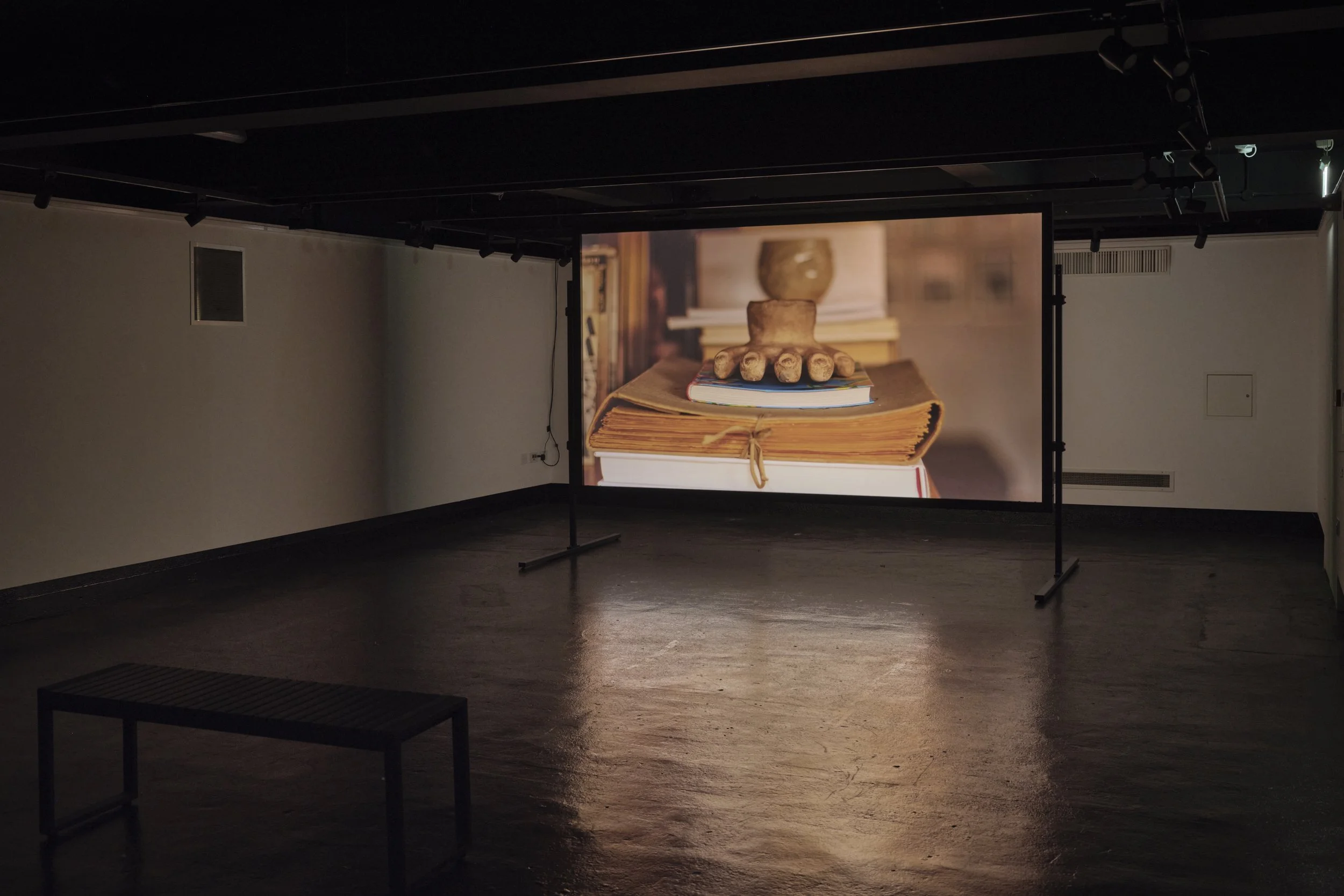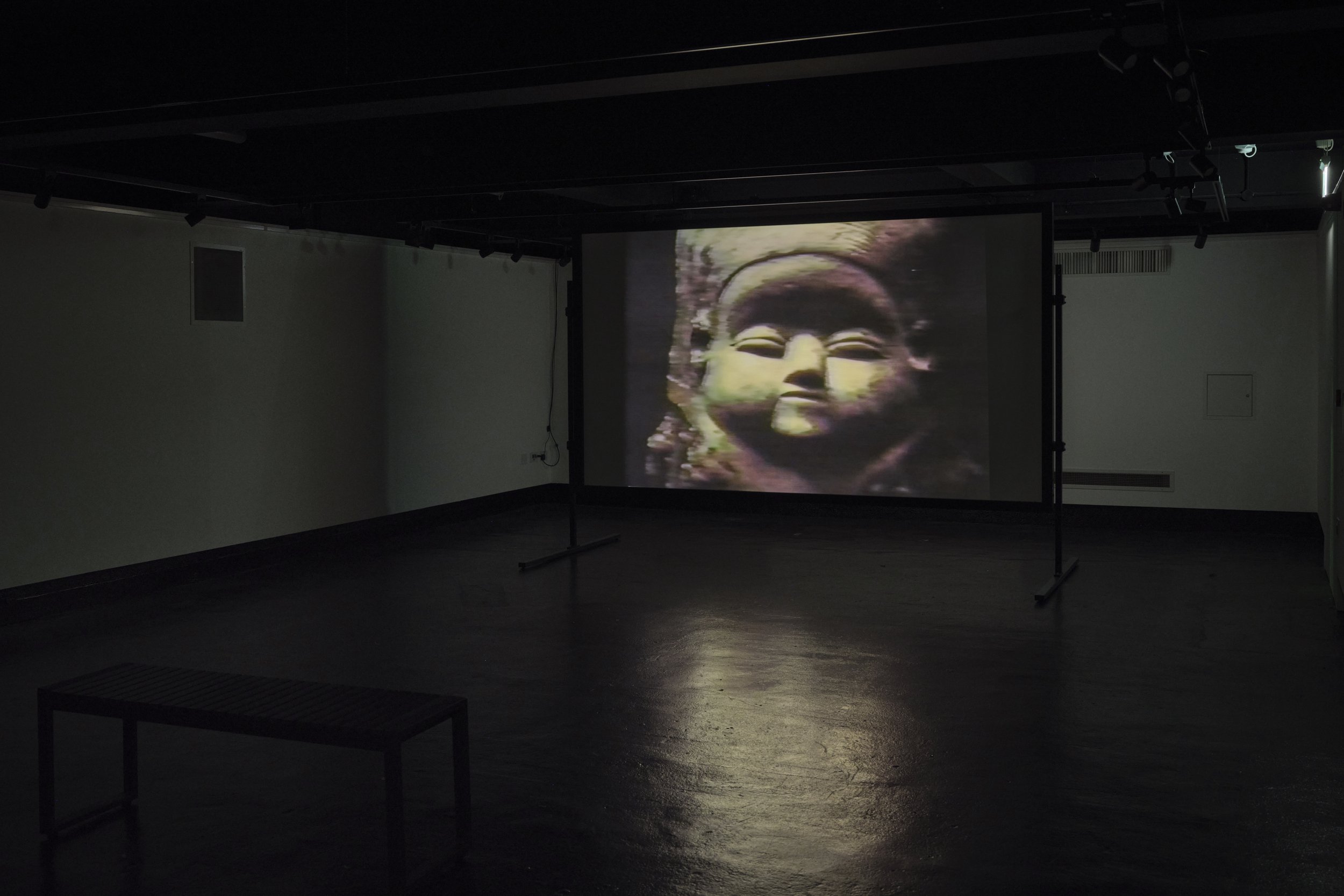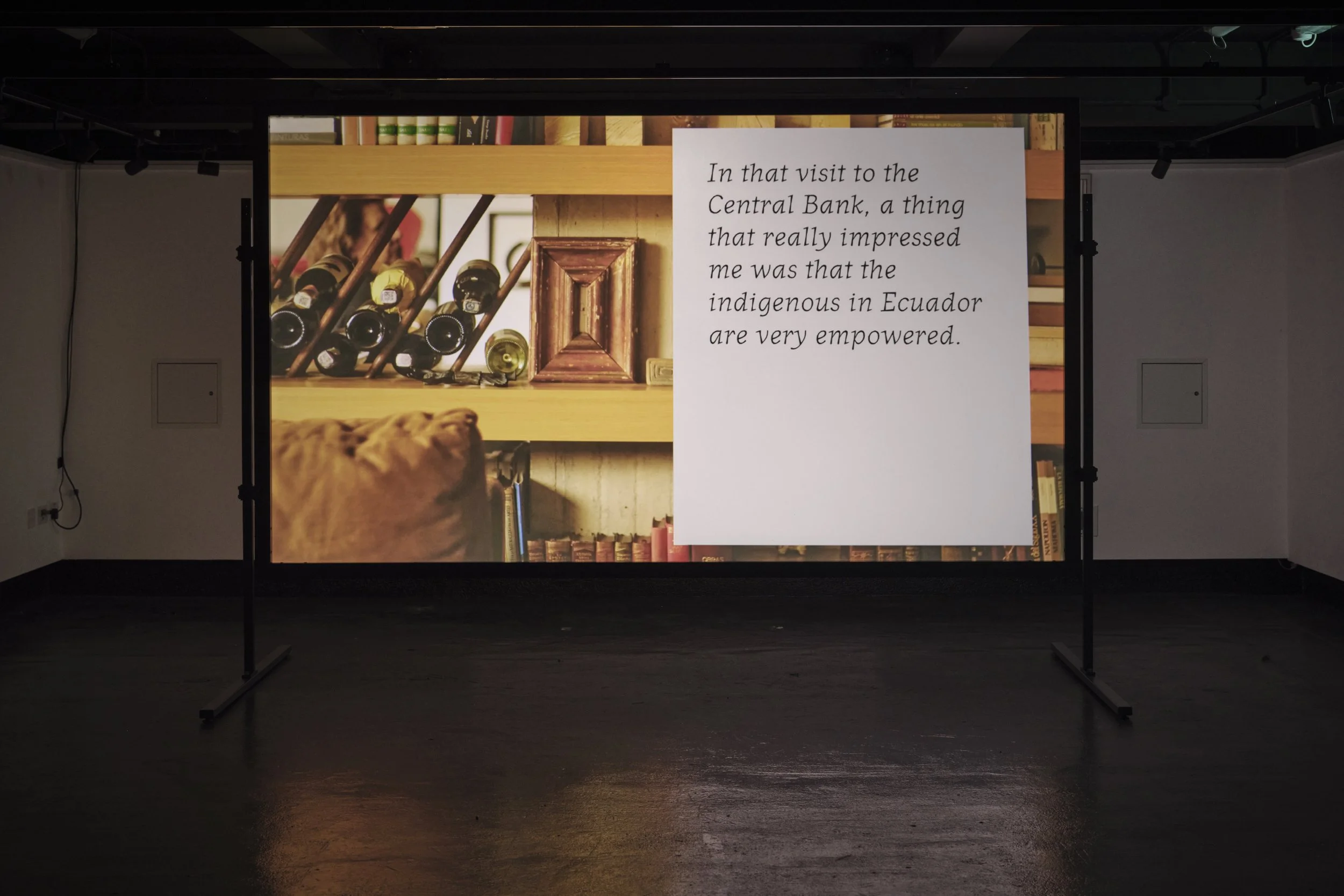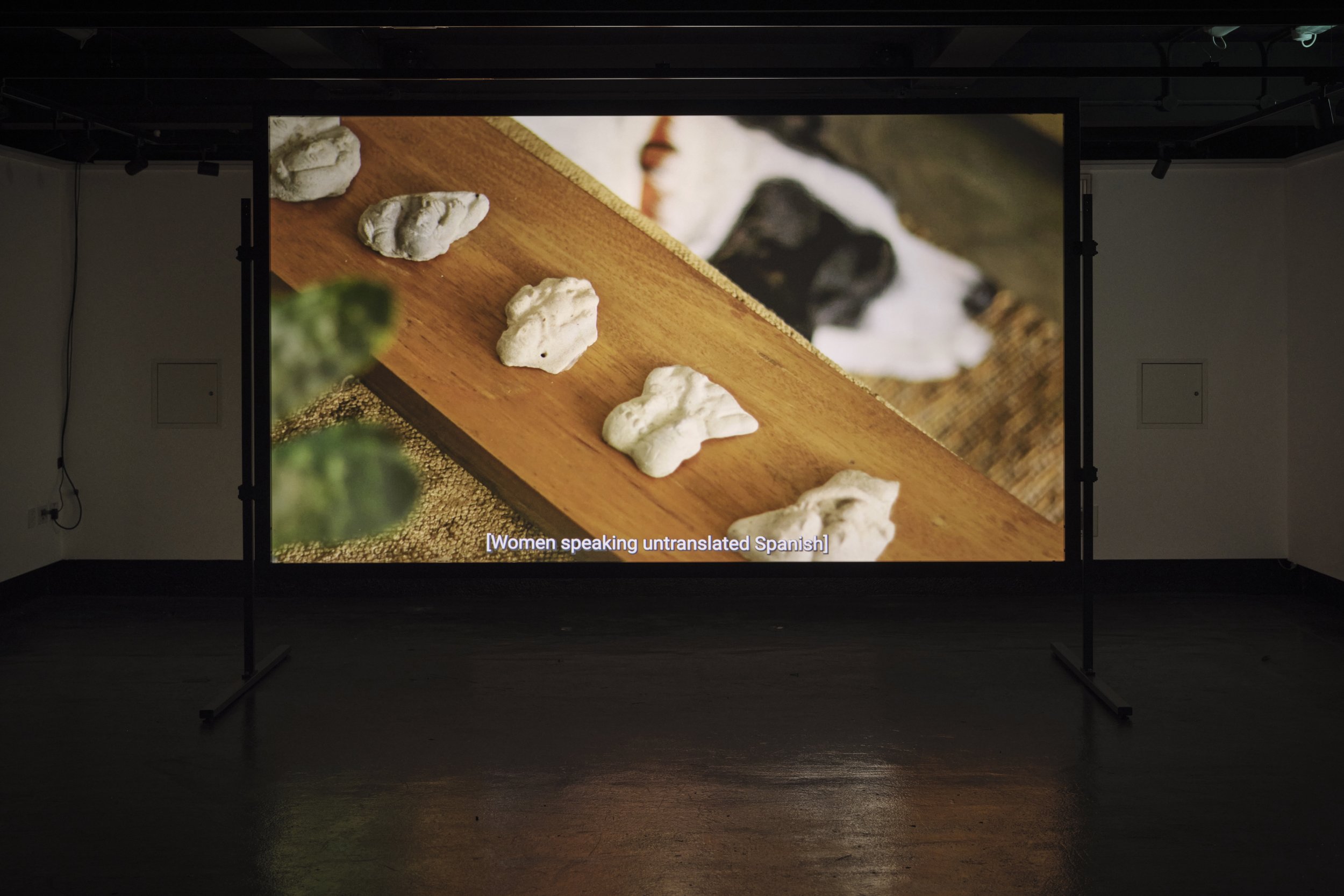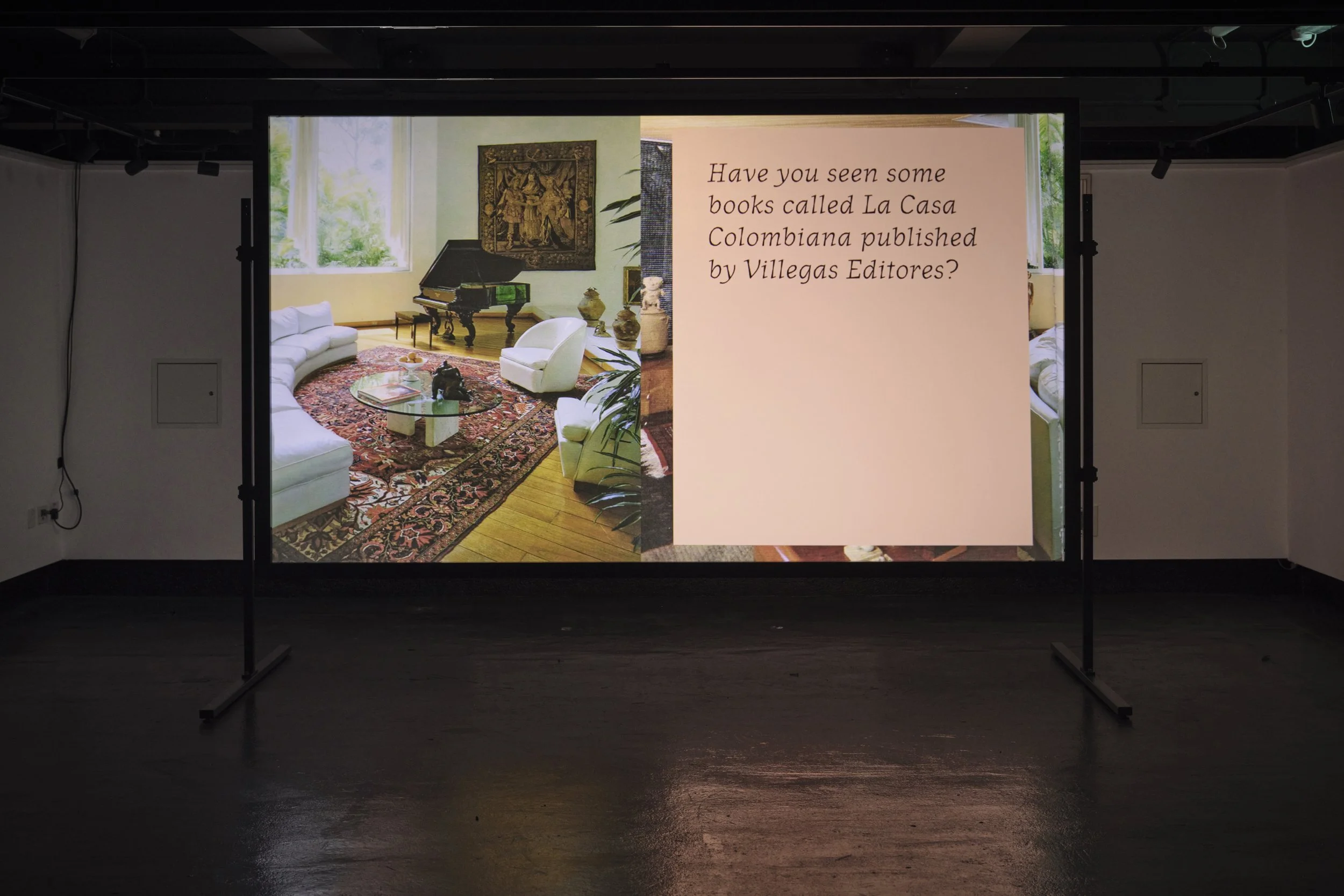Kate Morrell
…Y el barro se hizo eterno (...And the Mud Became Eternal) centres around conversations with four Bogotána women, documenting their private collections of pre-Columbian ceramics, displayed within domestic settings and embedded within the interior architecture of their homes.
The term ‘guaqueria’ – the act of looting archaeological sites – has been used in Colombia since the mid-19th century. Illicit excavations by guaqueros serve the existence of many public museums and private collections in Bogotá. Within the film, this kind of looting is posited as political resistance, working in opposition to nationalist, colonial and Western-oriented approaches to archaeology and museum collecting practices.
Colombia exists at a crossroads of cultural exchange, where colonial histories and indigenous knowledge systems create complex interdependencies. With recent laws put into place by the Ministry of Culture that state that private collections must be declared, the women, identities withheld, articulate varied rationales for keeping commoditised objects in circulation. Alternative reasoning for guaquería is proposed, challenging ways ‘licit’ and ‘illicit’ collecting practices are defined.
The film incorporates museum archive footage from the 1980s–90s along with newly shot video and photography, interlacing the public and private, blurring ‘expert’ knowledge with non-scientific and personal language. Conversations are only partially translated into English. These English translations can also be seen in digital prints shown alongside the film. Through this process of part-translation, the filmmaker engages new experimental and ethical ways to navigate the tensions around being seen and heard versus reserving a right to remain untranslated.
Kate Morrell is an artist living and working in London. For the past 15 years she has worked with archives, collections and libraries to develop projects that identify and respond to under-researched or overlooked histories. This work questions the conventional logics that serve and organise collections. By doing this, it invites critical re-readings of the hierarchies and structures of power which are given voice in their presentation.
With a background in artist bookmaking, her practice is situated in the expanded field of publishing. She works primarily with print media – with sculpture, drawing and video as extensions of that.
She has developed diverse methods for working with collections of different scales and contexts. Projects include: documenting illegal, private collections of pre-Columbian ceramics, kept by housewives in Bogotá; research within the Jacquetta Hawkes Archive at the University of Bradford on the life and work of the British archaeologist; and a residency at a remote Swiss library, residing alongside ‘shelving robots’ in this innovative, futuristic archive.
...Y el barro se hizo eterno
(...And the Mud Became Eternal), 2020
HD cideo colour/b&w, 16:9. Spanish dialogue and English (part-)translation, 35:42’
University Gallery
The Quadrangle, University of Galway
Galway H91 FN8X
Access Information
TULCA Festival of Visual Arts
Strange lands still bear common ground
Curated by Beulah Ezeugo
7-23 November 2025
Galway, Ireland
Access notes
The film includes the voices of several women: the four collectors, a collector’s daughter, the translator, and the filmmaker. Conversations are held in Spanish and part-translated to English using half-screen subtitles on the right of the screen. The change of speaker is indicated by a colour change in the half-screen subtitle. Selected parts of the conversation are left untranslated and this is indicated via standard subtitles.
Video documentation: Jonathan Sammon
Photo documentation: Ros Kavanagh

